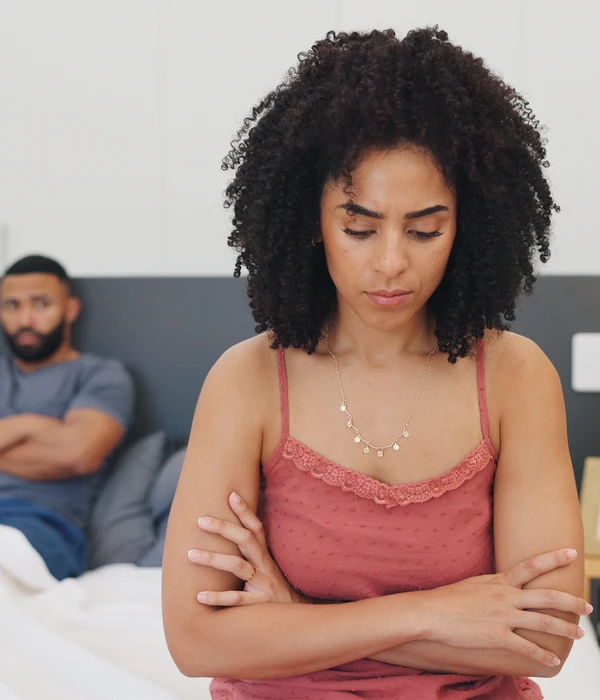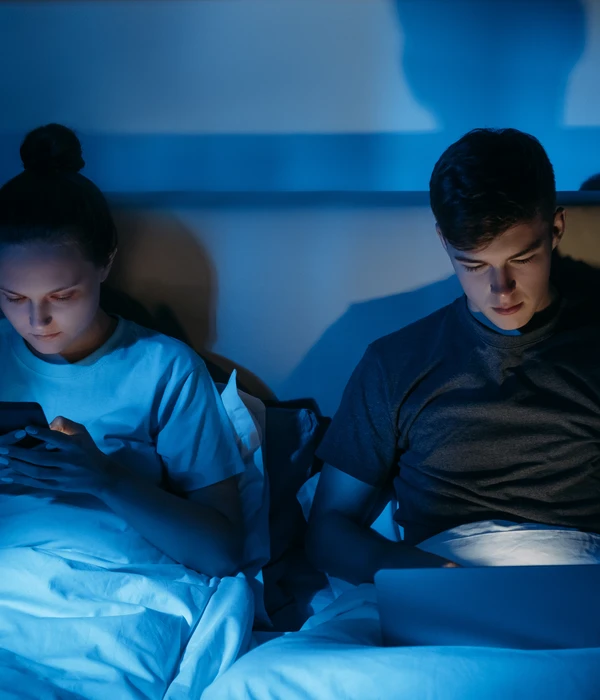Benzodiazepines Addiction Treatment
Benzodiazepines are often used to treat anxiety, insomnia, and several other medical conditions. However, their widespread availability has led to notable misuse and addiction issues. In the United States, statistics reveal a concerning pattern: 12.5% of adults use benzodiazepines, with 2.1% misusing them and 0.2% grappling with a benzodiazepine use disorder.
Among those who have used these medications, 17.1% misuse them, and 2% are caught in the throes of an addiction.

In 2021 alone, millions of prescriptions were filled, from 34.6 million people for alprazolam to 4.7 million for temazepam. This availability has paved the way for both accidental dependence among prescription users and intentional misuse by individuals seeking the drugs’ euphoric effects.
At Twilight Recovery Center, we understand the complexities of benzodiazepine addiction. Our treatment programs address the multifaceted nature of this dependency, offering a path toward recovery that integrates medication-assisted treatment, psychotherapy, and comprehensive support tailored to each individual’s needs.

What are Benzodiazepines?
Benzodiazepines, often referred to as “benzos,” are a class of prescription drugs primarily used to treat conditions such as anxiety, insomnia, and seizures. Despite their therapeutic benefits, benzodiazepines can lead to a risk of dependence and addiction, especially with long-term use or misuse. Commonly prescribed benzodiazepines include diazepam (Valium) and alprazolam (Xanax).
Types of Benzodiazepines
Benzodiazepines are widely prescribed to address a range of conditions, from anxiety to sleep disorders. Their classification into short-acting and long-acting categories determines how long their effects last in the body, influencing their prescribed uses.

Short-Acting Benzos
Short-acting benzodiazepines, such as Alprazolam (Xanax) and Triazolam (Halcion), are often prescribed for the acute management of anxiety episodes or insomnia due to their quick onset and shorter duration of action. These medications help immediately relieve symptoms but may require more frequent dosing.

Long-Acting Benzodiazepines
Conversely, long-acting benzodiazepines like Diazepam (Valium) and Clonazepam (Klonopin) are utilized for chronic conditions, offering sustained relief over a longer period.
These are suitable for individuals needing continuous control over their symptoms, such as those with generalized anxiety disorder or muscle spasticity.

Other Commonly Prescribed Benzodiazepines
Lorazepam (Ativan)
Versatile in its use, lorazepam can be prescribed to treat anxiety, insomnia, and seizure control, balancing its sedative properties with a medium duration of action.
The misuse of benzodiazepines may present significant risks. Dependence can develop with long-term use, and the potential for overdose increases, especially when combined with other central nervous system depressants like opioids or alcohol.
At our treatment center, we offer tailored treatment programs to support those seeking to overcome dependence or addiction to these medications.
What Are the Side Effects of Benzodiazepines?
While beneficial for treating specific conditions, misuse of benzodiazepine can lead to certain risks. Benzodiazepine side effects include:

Short-term Side Effects
- Drowsiness and poor concentration
- Slowed breathing and slurred speech
- Confusion and light-headedness
- Dizziness and headache
- Lowered blood pressure and dry mouth
- Memory and coordination problems
- Impaired motor coordination and blurry vision
- Mood changes and hostile/erratic behavior

Long-Term Benzodiazepine Side Effects
- Increased risk of falls, particularly in the elderly
- Heightened risk of overdose and death when combined with other CNS depressants (opioids, alcohol, prescription sleeping medications, sedatives)
Prolonged use or misuse of benzodiazepines can lead to dependency, withdrawal symptoms upon cessation, and cognitive impairments.
The risk of serious injuries or fatal outcomes escalates significantly when benzodiazepines are used in combination with other substances that depress the central nervous system.
Signs of Benzo Addiction
Recognizing benzodiazepine (benzo) addiction is crucial for initiating the journey toward recovery. Benzodiazepines, prescribed for a variety of conditions such as anxiety and insomnia, can lead to dependence and addiction, impacting one’s health and daily life significantly.
Taking Higher Doses Than Prescribed
Developing a tolerance to benzodiazepines, necessitating higher doses to achieve the same therapeutic effect, is a common pathway to addiction. This pattern of misuse can quickly escalate, often leading to a cycle of increased use and dependence. According to the Diagnostic and Statistical Manual of Mental Disorders (DSM), this is a hallmark sign of substance use disorder.
Experiencing Cravings
A compelling urge to use benzodiazepines, regardless of the medical necessity, signifies a deep psychological dependence. Such cravings are indicative of a serious addiction, as highlighted by American Addiction Centers and the National Survey on Drug Use and Health. These cravings can drive behavior, making it challenging to reduce or stop usage without professional help.
Continuing Use Despite Adverse Effects
Persisting in benzodiazepine use despite experiencing detrimental health effects, relationship issues, or negative impacts on responsibilities underscores the depth of addiction. Benzodiazepines are controlled substances due to their potential for abuse and dependence, underscoring the importance of using them as prescribed.
Withdrawal Symptoms Upon Cessation
Withdrawal symptoms, ranging from anxiety and insomnia to more severe effects like seizures, can begin within hours after the last dose, especially for those dependent on benzodiazepines. The risk of seizures, as noted in medical literature and treatment protocols, highlights the need for medically supervised withdrawal.
Inability to Stop Taking Benzos Despite Wanting To
The inability to cease benzodiazepine use, despite recognizing its harmful effects and having a desire to stop, is a significant indicator of addiction. This struggle reflects the physiological and psychological grip these medications can have, often requiring a comprehensive treatment approach to overcome.
The misuse of benzodiazepines also involves complex interactions of medical, psychological, and social factors. With millions of benzodiazepine prescriptions dispensed annually and a significant portion of these leading to misuse, the challenge of addressing benzodiazepine addiction is considerable. `
Treatment centers, utilizing a variety of therapeutic modalities and adherence to treatment improvement protocols, play a crucial role in supporting individuals through recovery, aiming to reduce the dose safely and manage withdrawal symptoms effectively.
Recognizing benzo addiction involves noticing patterns of drug abuse, including taking higher doses of benzos than prescribed, experiencing cravings, and continuing use despite adverse effects. Withdrawal symptoms upon cessation and the inability to stop taking benzos despite wanting to are clear indicators of addiction.
Our Therapy Treatment Options for Benzodiazepine Abuse
We recognize that recovery from benzodiazepine misuse requires addressing both the physical symptoms of withdrawal and the underlying psychological factors contributing to addiction. Here’s how our therapeutic treatments for benzodiazepine dependence specifically help individuals on their path to recovery:

Cognitive Behavioral Therapy (CBT)
CBT helps individuals identify and challenge the negative thought patterns and beliefs that contribute to their substance abuse and mental health issues. Focusing on these cognitive aspects, patients learn to develop healthier thinking patterns that reduce the risk of relapse.
CBT equips individuals with practical skills to manage stress and anxiety without relying on benzodiazepines, addressing common triggers for use and building a strong foundation for long-term recovery.
Dialectical Behavior Therapy (DBT)
DBT is particularly effective for individuals who experience intense emotions or have difficulty in their relationships, which can often be triggers for benzodiazepine misuse.
Through DBT, patients learn to regulate their emotions, improve their interpersonal skills, and tolerate distress without turning to substance use. This therapy includes mindfulness practices that help individuals remain present and make conscious decisions about their recovery.
Eye Movement Desensitization and Reprocessing (EMDR)
EMDR is a therapeutic technique that helps individuals process and heal from trauma, which is often a root cause of addiction. By focusing on distressing memories while receiving bilateral sensory input, EMDR allows patients to reprocess traumatic experiences in a way that reduces their emotional impact.
This can significantly alleviate the psychological need to use benzodiazepines as a coping mechanism.
Motivational Interviewing
Motivational Interviewing is a patient-centered counseling style that addresses ambivalence to change. It helps individuals increase their motivation and commitment to a life free from benzodiazepine dependence.
Through this approach, patients explore their reasons for change, enhancing their confidence and readiness to engage in recovery.
12-Step Program
The 12-Step Program provides a structured support system that encourages individuals to embrace sobriety through shared experiences and mutual support. Participation in this program offers a sense of community and belonging, reduces feelings of isolation, and reinforces the commitment to recovery.
The steps also promote spiritual exploration and growth, which can be vital to healing for many individuals.
Modalities for Treating Benzodiazepine Misuse
Our treatment modalities for benzodiazepine misuse are designed to cater to the various aspects of addiction, ensuring a well-rounded approach to recovery. Here’s how each modality uniquely contributes to the healing process:

Group Therapy
Group therapy provides a supportive community where individuals share their experiences, challenges, and successes with benzodiazepine misuse. This setting fosters a sense of belonging and mutual understanding, offering perspectives that can illuminate one’s own journey.
By witnessing the recovery of peers, participants gain hope and motivation. The group dynamic also encourages the development of social skills and relapse prevention strategies through feedback and shared coping mechanisms.
Individual Therapy
In individual therapy, clients receive one-on-one attention from a therapist, allowing for deep exploration of the personal issues underlying their addiction.
This modality offers a private space to process emotions, traumas, and behaviors contributing to benzodiazepine misuse.
Tailored specifically to each person’s needs, individual therapy can address co-occurring mental health disorders, offering personalized strategies for managing stress, anxiety, and triggers related to substance use.


Process Group
Process groups focus on the emotional and psychological experiences of the participants, providing a platform to express feelings and thoughts that arise during recovery.
This therapy modality encourages self-discovery and emotional healing by allowing members to delve into their interpersonal relationships and patterns of behavior in a safe and supportive environment.
Through guided discussion and reflection, individuals learn to identify and work through the emotional drivers of their addiction.
Family Therapy
Family therapy involves the loved ones of the person struggling with benzodiazepine misuse and recognizing the significant impact addiction has on familial relationships.
This modality works to heal and strengthen these relationships, improving communication and fostering a supportive home environment conducive to recovery.
By addressing the dynamics and issues within the family system, this approach helps mend the rifts caused by addiction. It educates family members on how best to support their loved one’s journey to sobriety.


Holistic Therapy
Holistic therapy addresses the physical, emotional, and spiritual aspects of recovery, offering a comprehensive approach to healing from benzodiazepine misuse.
Modalities such as yoga, meditation, art therapy, and nutritional counseling are employed to improve overall well-being. These practices promote stress reduction, enhance self-awareness, and encourage a healthy lifestyle, crucial components for sustained recovery from substance abuse.
By integrating these diverse therapy modalities, Twilight Recovery Center ensures that each individual receives the care and support necessary to navigate the complexities of benzodiazepine addiction, paving the way for a balanced and sustained recovery.
Detoxification
Detoxification marks the first critical step in the recovery process, providing a medically supervised environment where individuals can undergo benzodiazepine withdrawal safely. Our detox program is designed to manage withdrawal symptoms and minimize cravings through a carefully managed tapering process. This stage lays the groundwork for a successful transition to further treatment modalities.
Inpatient Treatment
We offer inpatient treatment for those requiring a more structured and supportive environment. This setting is particularly beneficial for individuals with complex needs, including co-occurring mental health disorders, or those who have struggled with long-term dependency. Our inpatient program includes intensive therapy, 24/7 medical supervision, and a holistic suite of services to foster recovery.
Outpatient Treatment
Outpatient treatment provides a flexible option for individuals transitioning from inpatient care or those with less severe addictions. Participants engage in scheduled therapy sessions while continuing to live at home, allowing them to maintain work, school, or family commitments. This program supports ongoing recovery, focusing on relapse prevention and coping strategies.
Aftercare Programs
Our aftercare programs extend support beyond the initial treatment phases, offering resources such as sober living houses, alumni networks, and ongoing therapy groups. These services are crucial for sustaining the gains made during treatment and for navigating the challenges of long-term benzodiazepine recovery.
Medication-Assisted Treatment (MAT)
MAT is integral to our approach, especially during the detoxification phase. MAT uses medications like flumazenil and others to alleviate withdrawal symptoms, reduce cravings, and stabilize brain chemistry. This evidence-based practice is combined with psychotherapy to address the psychological aspects of addiction.
Tailored Treatment for Every Individual
At Twilight Recovery Center, we understand that each person’s journey with benzodiazepine addiction is unique. Our team of experts works closely with each individual to develop a personalized treatment plan that includes the most appropriate therapies and modalities for their situation. Our goal is to provide a path to recovery that is compassionate, comprehensive, and conducive to long-term success.
How We Treat Substance Addictions like Benzodiazepine Use
Our comprehensive approach used to treat binge eating involves a multidisciplinary team of healthcare professionals dedicated to helping you reclaim control over your eating behaviors and overall health. Here are the therapies and strategies we offer:
Get Benzodiazepine Addiction Treatment at Twilight Recovery
Choosing Twilight Recovery Center for the treatment of benzodiazepine dependence means selecting a path toward recovery supported by luxury amenities, accredited professionals, and personalized care plans. Our approach is designed to ensure you or your loved one can safely and effectively overcome addiction and reclaim a life of health and wellness. Contact us to get started.
Frequently Asked Questions About Benzodiazepine
Use and Addiction
What Does Benzo Addiction Look Like?
Benzo addiction manifests as a continued dependence on benzodiazepines despite the harmful consequences. The Diagnostic and Statistical Manual of Mental Disorders outlines criteria for substance use disorders, including patterns of compulsive use, increased tolerance, and withdrawal symptoms.
According to the 2021 National Survey on Drug Use and Health, a significant number of people are dependent on benzodiazepines, reflecting the widespread issue of misused prescription benzodiazepines.
What Are the 3 Types of Benzos?
Benzodiazepines are classified based on their half-life into short-acting, intermediate-acting, and long-acting, affecting their duration of use and risk of dependence.
Benzodiazepines are Schedule IV controlled substances, indicating their potential for abuse and dependence. The treatment of benzodiazepine dependence often involves reducing the dose gradually to minimize withdrawal symptoms.
Do Benzodiazepines Cause Mood Swings?
Yes, benzodiazepines can cause mood swings due to their impact on the central nervous system. The Diagnostic and Statistical Manual of Mental Disorders notes that withdrawal from benzodiazepines, particularly after long-term use, can exacerbate mood instability.
Managing withdrawal without causing severe mood disruptions is a critical aspect of treatment protocols.
What Happens if You Take Benzodiazepines for a Long Time?
Long-term use of benzodiazepines leads to physical and psychological dependence. The 2021 National Survey on Drug Use and Health underscores the growing concern over long-term benzodiazepine prescriptions dispensed and the risk of developing substance use disorders. Effective treatment protocols focus on gradually reducing the dose to mitigate withdrawal symptoms and support recovery.
What Are the Symptoms of Withdrawal from Benzodiazepines?
Since benzodiazepines are a controlled substance, withdrawal from benzos is sometimes influenced by factors like a history of substance abuse. Withdrawal can start within weeks of the last dose and may affect millions, with an estimated 3.9 million people grappling with benzodiazepine dependency.
The federal government provides guidelines for managing these symptoms, emphasizing the need for medical oversight. Sharing your medical and substance use history with healthcare professionals is vital for a tailored withdrawal plan, often involving a gradual reduction of the drug to ease the process.